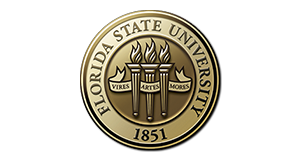Florida State University Search
Facilities' Utilities and Engineering Intern Program
08/20/2024
For nearly three years, Utilities and Engineering’s Building Automation System (BAS) team has employed student interns from various engineering and computer science educational tracks at Florida State. The intern program’s goal is to aid in implementing large numbers of equipment/datasets on campus. This ranges from working with mechanical equipment, such as boilers and chillers, to electrical equipment, such as generators, to fire alarms, utilities distributions and more.
The intern program helps to compile datasets; create user-friendly features inside the BAS software for technicians, engineers, and operators (primary users of the BAS); implement code for fault detection; export/extract data (such as temperature, humidity, etc.) from the BAS and integrate into automated infrastructure management (AiM); and assist in development of dashboards in Power BI and Grafana. Monitoring and troubleshooting these complex systems is an essential function of running the campus buildings efficiently, providing a safe and comfortable environment.
A total of 15 students and counting have participated in this program so far, working to gain hands-on skills in a wide variety of areas. Some goals and projects of the intern program include the Building Automation System Migration and the Fault Detection and Diagnostics (FDD).
For the Building Automation System Migration project, interns are working on migrating code, alarms, trends, and graphics from the old system to the new one. The old system had exceeded its life expectancy, and it was therefore time to switch to the new system for various operational and cybersecurity reasons. The University decided to manage this process internally through a small team of BAS experts, engineers, and interns, and the support of FSU ITS and Siemens.
Of course, 30 years-worth of data takes time to migrate and update into a new system. The impact on campus may go unnoticed by campus users and visitors, but that is exactly what the team was tasked with doing – to keep things running and catch problems as they arise. Some examples of these include alarming critical spaces on campus about temperature, humidity or lighting issues; overhauling troubleshooting procedures for the (utility) plant operators (what to do in case a pump fails, when to bring on another chiller, etc.); providing building personnel (from Athletics, Research, etc.) access to monitor conditions of their own buildings, like temperature control. The interns focused on finding inconsistencies, and missing data, ensuring system navigation was functioning, and updating visuals with new software features. With their help, Utilities and Engineering phased the old system out in early July 2024. Updating the system's functionality will remain an ongoing process, and some interns will continue to work on this past summer.
The FDD project utilizes the BAS system, Desigo, to automatically identify equipment deviations from optimal conditions and generate work tickets in AiM. So far, 20% of air handling units (AHUs) on campus have FDD implemented. If there’s a fault with an AHU, it would likely affect several rooms or floors in a building. The system also waits 72 hours before sending a work order to AiM to ensure accuracy in detecting faults. Activities that could cause faults include maintenance on the unit, or an exceptional weather event. FDD determines if it’s a ‘sustained’ issue and then automatically reports the issue to AiM. The interns are focusing on generating equipment profiles. These profiles contain asset information from AiM, equipment location, mechanical and control specifications, and BAS system data points (sensors for temperature, flow, etc.). This information is integral to the implementation of FDD. As buildings are completed, they will implement the code and infrastructure to enable Desigo to identify faults and generate automated tickets in AiM.
Both projects work to set BAS interns up for future success in their chosen careers, but the interns are also getting a peek into FSU’s future throughout the internship program with opportunities such as a behind-the-scenes tour of the construction in progress of the future Legacy Hall. In the walkthrough of the construction site, the interns witnessed the early stages of building systems being put in place such as the fire alarm system and the main electrical conduit risers traveling up the building. Opportunities like this provide the students with hands-on opportunities they do not receive in the classroom and the chance to hear from a variety of experts and mentors in the field.
One of those mentors is Marcela Castano, a BAS Specialist at FSU who helps oversee the intern program.
“The experience has been very rewarding! I particularly enjoy the moments when something ‘clicks’ for them after weeks or months of working with schematics or data from the different equipment instrumentation. It’s also great to witness the confidence in their abilities grow as they encounter more complex tasks,” said Castano. “The program has also helped me grow as a professional. A few years ago, I was an engineering student at the College of Engineering, just like them. Now, I get to design training programs and procedures that are easily replicated so that we can scale up the implementation of our projects and initiatives through the assistance of the interns. Overall, I feel lucky to be a part of their early careers and try my best to support their aspirations,” said Castano.
As the intern program is still young, Castano recognizes the ways in which the program can continue to grow in the coming years, from potentially opening the program to a wider variety of majors and taking on new projects. The program will continue to progress and reflect the needs of BAS, ensuring that both the intern’s and BAS’ futures are bright.
From left to right, Donovan Dwight, Marcela Castano, Andrea Gonzalez, Don Pittman, Onyx Oh, Xavier Hammond, Abhishek Pavshe (navy shirt), Vineet Kulkarni (black polo), Kiran Muppana.
Not present, but also part of the program at the present time: Cameron Ivey, Tahj Reed, Nicholas Olin.





